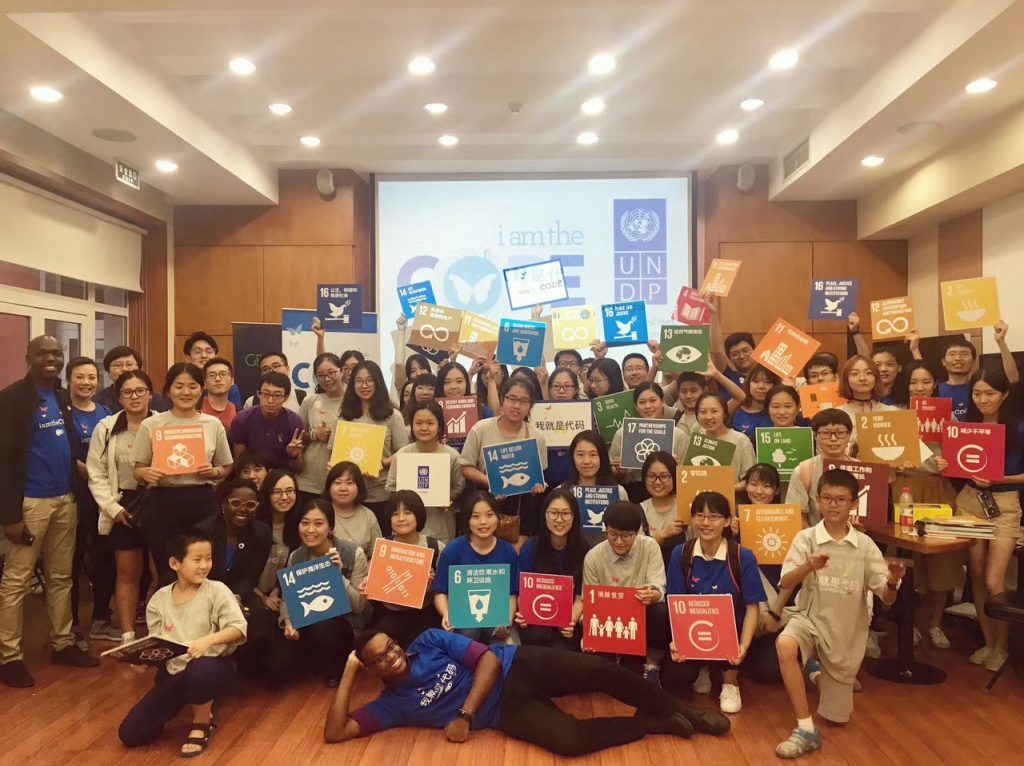Making the makers and innovators for the SDGs
Description
Institution
Organizations/areas of the university involved
School of Social Sciences (G3S), University of Geneva; School of Public Policy and Management (SPPM), Tsinghua University
Country
China/Switzerland
The Geneva Tsinghua Initiative (GTI) was established in 2016 in response to the call to action of the 2030 Agenda, making it the first in the world to provide comprehensive education programmes for the SDGs. The initiative is a partnership between the University of Geneva, with its strong ties to international organizations, and Tsinghua University, China’s top university with its main campus in Beijing’s high-tech corridor, and another in Shenzhen, heart of the Chinese manufacturing ecosystem. The initiative aims to cultivate the next generation of leaders who are equipped with the theoretical knowledge and skill sets required to tackle the complicated social and environmental challenges facing the world today.
The GTI provides innovative education programmes that address the SDGs in a practical, hands-on way. All programmes adopt a modern approach to open innovation characterized by a focus on challenge-based learning inspired by real-world problems, as well as collaboration through multidisciplinary and multicultural teams. GTI created the Solution Space and the SDG FabLab that houses a range of digital fabrication technologies and other tools for quick prototyping of frugal innovations. The SDG Solution Space now hosts a burgeoning ecosystem for SDG innovations in Geneva. In 2019, a sister SDG Solution Space was established at iCenter at Tsinghua University.
All the GTI educational activities are designed with international exchange as a key component, between Switzerland and China, but also towards a network in other parts of the world, called United Labs for the Global Goals. GTI programmes range from a two-week innovation exchange that bridges young social entrepreneurs from around the world to a 2.5 years Dual Degree Master Programme that leads to a Master in Innovation, Human Development and Sustainability (MIHDS) and Master in Human Development, Innovation and Sustainability and Master of Public Policy for Sustainable Development Goals (MPP-SDG). The GTI also runs the SDG Accelerator, which provides support to GTI student projects to scale up through the different innovation phases, aiming to achieve social impact and to allow students to learn about innovation as a discipline, while developing their own ideas.
Results and impact measured or expected
The initiative aims to achieve the following results: immerse students in different cultures to teach them to think and act outside of their comfort zones; develop novel teaching methods based on solving concrete problems in interdisciplinary teams; prepare students for the transition to a global economy transformed by digital technology and crystallize the convergence between various stakeholders. So far, GTI has successfully run four years of summer schools that enabled more than a hundred students from across the world to develop and test their solutions to SDGs challenges. Our SDG Innovation Bootcamp Programme brought together social entrepreneurs from China and Switzerland, now evolving to a continuous education programme that fosters innovation for SDG implementation. Our master programme will see its first batch of graduates this summer. All our programmes allow students to work directly with UN organizations like WHO, ITU, UNDP, UNICEF, UNEP and etc, as well as grassroots NGOs and companies in countries like Switzerland, China, Senegal, Uganda and many more.
Connection with the SDG framework
All GTI programmes are rooted in the SDGs and aim to educate students and young professionals to tackle SDGs challenges. For example, the master program focuses on defining and developing concrete solutions for the SDGs through hands-on, team-based and project-driven activities, in parallel with courses on the fundamentals of sustainable development in all its dimensions – human, environmental and institutional. The teachers are experts from the University of Geneva and a range of Inter-Governmental Organizations (IGOs) and Non-Governmental Organisations (NGOs) in Geneva. The 6-months or one-year stay abroad allows students to explore intercultural aspects of sustainability. Another example is the summer school: the 2018 edition focused on prototype development in the field of mobile health (m-health). It was run in collaboration with Be Healthy, Be Mobile, a joint program between the International Telecommunications Union (ITU) and the World Health Organization (WHO).
Barriers and follow up
Our programmes have been trying to strike a balance between traditional teaching and hands-on learning to equip our students with the necessary knowledge and skill sets. The GTI Scientific Committee has been perfecting this balance with constant inputs from students and professors and right now the curriculum exemplifies an innovative yet balanced approach towards SDG education. Another challenge that we encounter relates to the role and capacity of educational institutions to help students’ projects achieve market viability. Many students develop innovative projects aiming to solve social and environmental problems, but many projects cannot reach the next stage of development due to various challenges. The GTI has developed an SDG Accelerator which provides financial and capacity building support to student projects to scale up through the different innovation phases, from idea conceptualisation to prototyping, validation and implementation to achieving a social impact.
Education 4 SDG funciona gracias a WordPress
